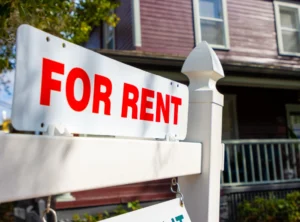Renters Insurance: What’s Covered, What’s Not
Renters Insurance: What’s Covered, What’s Not
Fifty-six percent of renters aged 23 to 25 do not have renters insurance, perhaps because they believe their landlord’s insurance covers them. This can lead to landlord-tenant misunderstandings — affecting both parties. Below, find out what renters insurance covers (so you can explain it to tenants) and why it benefits you to require your renters purchase coverage.
What Does Renters Insurance Cover?
Renters insurance covers tenants’ personal possessions and belongings, liability and additional living expenses.
If tenants’ property is damaged or stolen, renters insurance will cover repair or replacement up to the limits of the policy. If there’s a flood or fire on site and renters need to relocate while the apartment is fixed, the insurance will pay for a hotel stay. Renters insurance also covers tenant liability if someone is hurt in his or her apartment.
Tenants may believe their property is covered under your property insurance, but this isn’t the case. When you educate tenants on the reasonable cost of renters insurance versus replacing their valuable possessions, the value becomes clear.
What Is Not Covered With Renters Insurance?
Some policies have exclusions, for instance jewelry exclusions. It is the tenant’s responsibility to find out what is covered under his or her policy and to purchase riders to cover excluded items.
As with other types of insurance (i.e., medical), there is a deductible that must be met before the insurance kicks in. Thus, your renter might have to pay a portion of the cost for furniture repair before the insurance will cover the rest of the bill.
While hurricanes and wildfires are covered by renters insurance, floods, sinkholes and earthquakes are not covered. Neither is pest damage.
Renters insurance covers personal property. Meaning, unless tenants are related, each renter should purchase his or her own insurance. While possessions stolen from a car are covered under renters insurance, the car (scooter, motorcycle, etc.) isn’t covered. That’s where auto insurance comes in.
Should You Require Renters Insurance?
As a landlord, you must purchase your own insurance to cover the property and limit your liability. You may wish to require that your renters purchase their own insurance, too.
Renters insurance is the best way for tenants to protect their property from the unexpected. When your renters have insurance, they have peace of mind that a stolen laptop will be covered, for instance. You will enjoy reduced threat of legal action in the event there’s an incident in your rental property.
Renters insurance policies usually cost $20 or less per month. If renters would balk at paying this much to protect their belongings, they likely don’t have enough money to rent from you. Requiring renters insurance can thus weed out individuals who would make poor tenants.
Lastly, renters insurance can protect you if your tenant causes property damage. Most policies cover the landlord’s insurance deductible if, say, a renter causes a house fire. Your insurance will pay for repairs, and your renters insurance will meet your deductible, saving you money.
If you wish to require renters insurance, insert a clause into the lease. To learn more about leases, and to purchase a customizable lease agreement, consider becoming an American Apartment Owners Association member today.
Disclaimer: All content provided here-in is subject to AAOA’s Terms of Use.













 Accessibility
Accessibility